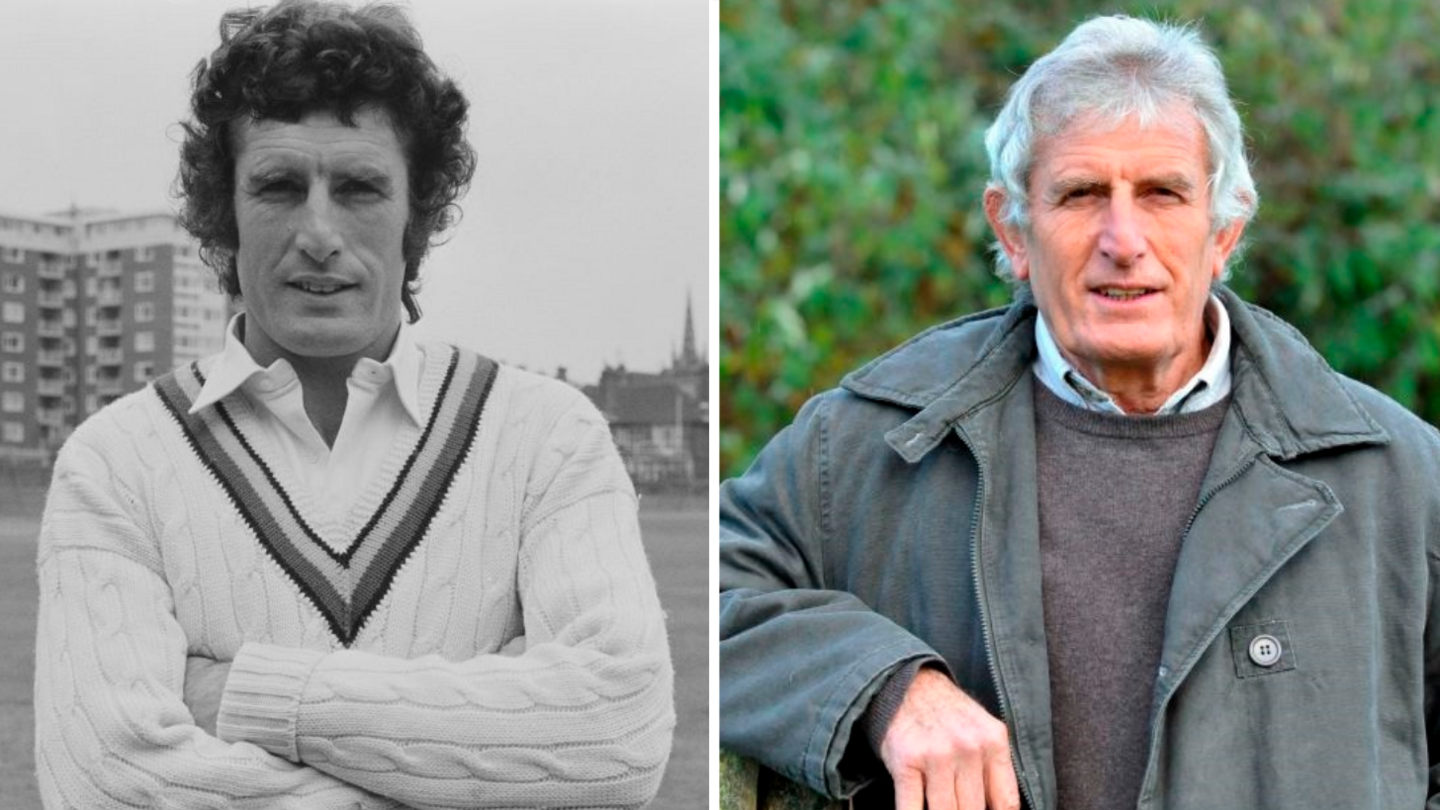Fast bowling's not just about being fast - Snow

John Snow took 202 wickets in 49 Test appearances - and also played in nine one-day internationals, including the very first at the Melbourne Cricket Ground (MCG) in January 1971
- Published
Former England fast bowling great John Snow says his modern-day Sussex successor Ollie Robinson should still have a future at Test level - and that fast bowling is not just about being fast.
Robinson has taken 76 wickets for England in 20 Tests, but played the most recent of those in India in February, missed out on selection to face Pakistan in October and is now at serious risk of losing his central contract with the England and Wales Cricket Board (ECB).
Rob Key, England's managing director of men's cricket, told the Telegraph this summer that Robinson "is one of the best bowlers in the world at 83mph, but not at 75mph".
"When you think about the top wicket takers," Snow told BBC Radio Sussex, "you're looking at people like Richard Hadlee and Glenn McGrath.
"They weren't out-and-out fast bowlers. You've got to bowl fast enough but also move or turn the ball enough to get batsmen playing the wrong shots."
It is true that former Yorkshire and Hampshire player Robinson, 30, has experienced his share of injuries - and failed to finish his past two Tests.
But, after a summer spent finding his fitness and showing top form for Sussex, Robinson looks trimmer and quicker - and has simply been exercising in the good, old-fashioned virtues of bowling overs and taking wickets.
England's Robinson aims for regular cricket return
- Published3 April 2024
England bowler Robinson signed by Trent Rockets
- Published24 June 2024
England fast bowler Robinson signs new Sussex deal
- Published29 September 2023
Worcestershire-born Snow, 82, took 202 Test wickets in 49 Tests for England between 1965 and 1976, when his final three appearances were in the series loss to the first of the West Indies' great pace battalions.
He also took a career haul of 883 first-class wickets for Sussex, as well as a further 225 in one-day cricket, making his debut at Lord's in the first final in 1963, before coming out of retirement to help Warwickshire win the Sunday League title in 1980.
But, at his peak, he took an English record 31 wickets in the 1970-71 Ashes series win over Australia.
Although he can point to having played against some of the game's real quicks - not least Dennis Lillee, Jeff Thomson, Andy Roberts and Michael Holding - he can also mention plenty more who relied not just on pace, of which the prize example is the recently retired all-time Test record wicket-taking fast bowler James Anderson, now England's bowling coach.
"You have to bowl a heavy ball and be at batsmen all the time," Snow said,
"But, on overseas wickets, there’s not so much room for error. That's something you learn."

Ollie Robinson's 38 Championship wickets in 11 games this summer have helped Sussex win promotion
Aside from skipper Ben Stokes, if he is fit, England have picked six pacemen - Gus Atkinson, Josh Hull, Matthew Potts, Olly Stone, Chris Woakes and the uncapped Brydon Carse - in their 17-man squad for the three-Test series in Pakistan, starting on 7 October.
England's crowded schedule then includes two one-day internationals and six T20s in the West Indies in November before two Tests in New Zealand in December.
By then, England will have released the latest list of names on central contracts - and Robinson is not expected to be on it.
But, while he has had his fair share of injuries, so have so many pretenders to a prized place in the England pace ranks: Stokes, Woakes, Stone, Mark Wood, Josh Tongue, Ben Coad, Matthew Fisher, Jamie and Craig Overton, just for starters.
Robinson has proved his fitness for Sussex this season, bowling 336.2 overs and taking 38 wickets in County Championship matches to help inspire his side to promotion from Division Two.
In addition, he played in 14 games in the T20 Blast as Sussex reached Finals Day - and he will this week be part of the side looking to take four points against Middlesex, to be sure of winning the Division Two title.
So is the current England policy of apparently picking only bowlers who can reach delivery speeds of 90 mph - even though they are not taking wickets in the Championship - the best way to win in Australia in 14 months' time?
"That's a fallacy," said Snow. "Bazball has been good in its own way. It gets rid of the nerves of initially being in the side. There's a bit of freedom knowing you're not going to get completely lambasted.
"But you also need to learn how to read the game. You've got to learn to know when to press the pedal and when to apply the brake. As that last Test showed you can't get away with it all the time.
"We played 32 county games a season and bowled 1,000 overs.
"And, like Ollie Robinson says, the only way to learn it is to do it."
Analysis - 'Don't you forget about Ollie'
Adrian Harms - BBC Radio Sussex's county cricket reporter
John Snow knows a thing or two about fast bowling - and what it takes to win an Ashes series down under - and his words resonated with me as I watched England struggle to take wickets in that final Test of the summer at The Oval.
Could a re-energised and noticeably fitter Ollie Robinson be the answer? Or has that ship now sailed?
Whatever the rift that has caused Robinson to almost certainly lose his central contract, is to maybe hasty for the England management to totally forget him.
This season he has proved his fitness the Championship matches and in the Blast. His 38 wickets in 11 games compares to the combined 11 Championship games played by three of the four England fast bowlers at The Oval - Woakes, Hull and Stone, who have bowled 291 overs and taken 14 Championship wickets between them.
Clearly Robinson is no Hadlee or McGrath, John Snow wasn’t suggesting he was. But, when fully fit and focused, he’s metronomic, and his record at Test level is excellent.
Whatever his past misdemeanours - and Robinson is clearly not blameless - he remains a high-class performer, and England may be unwise to discount him from future selection.